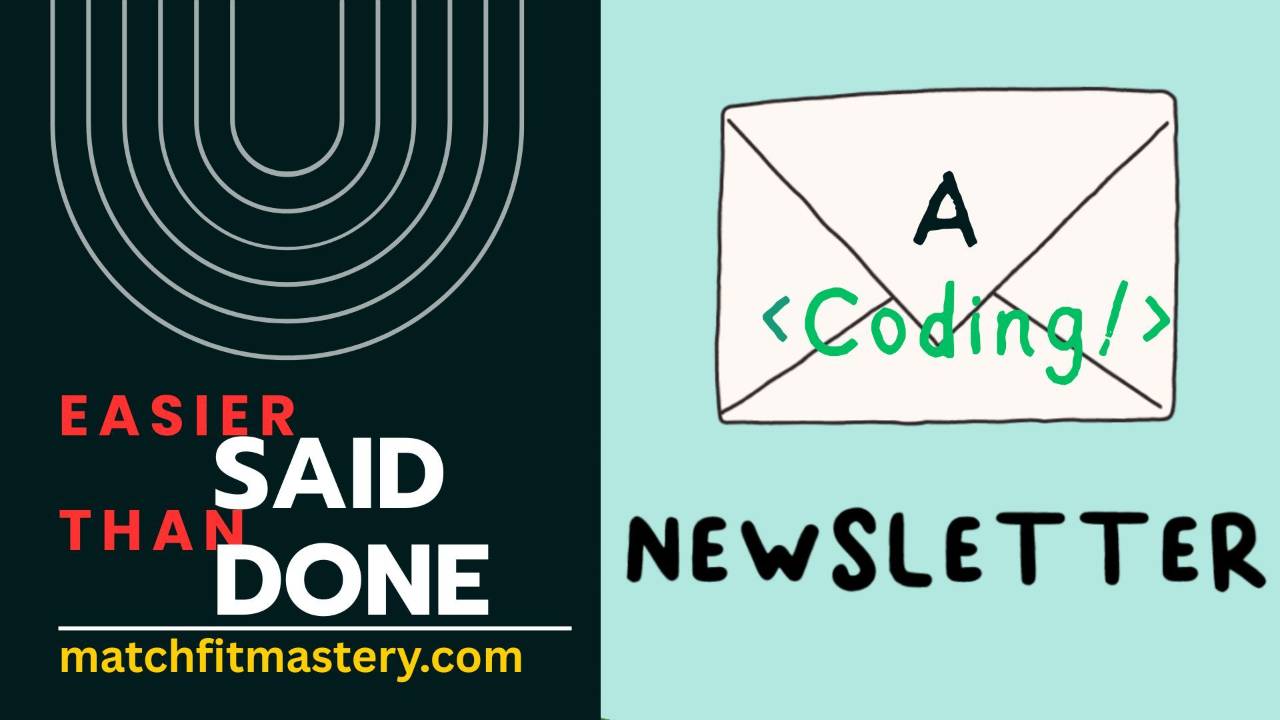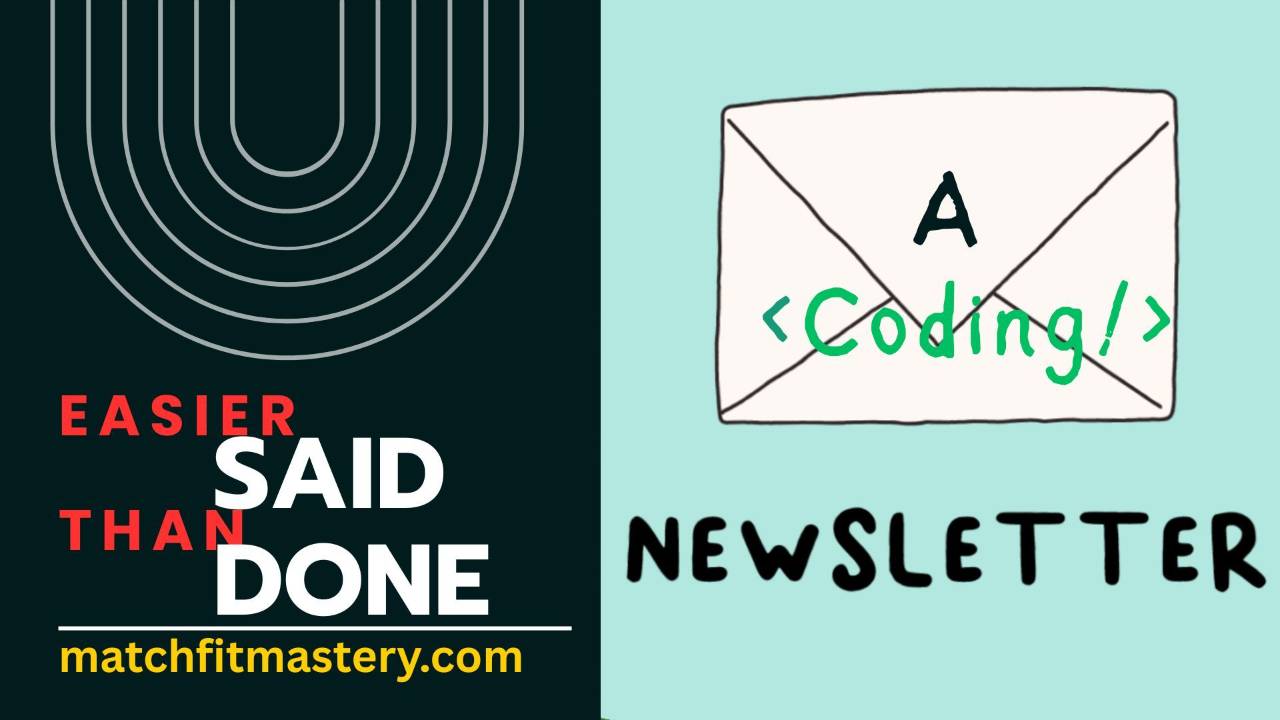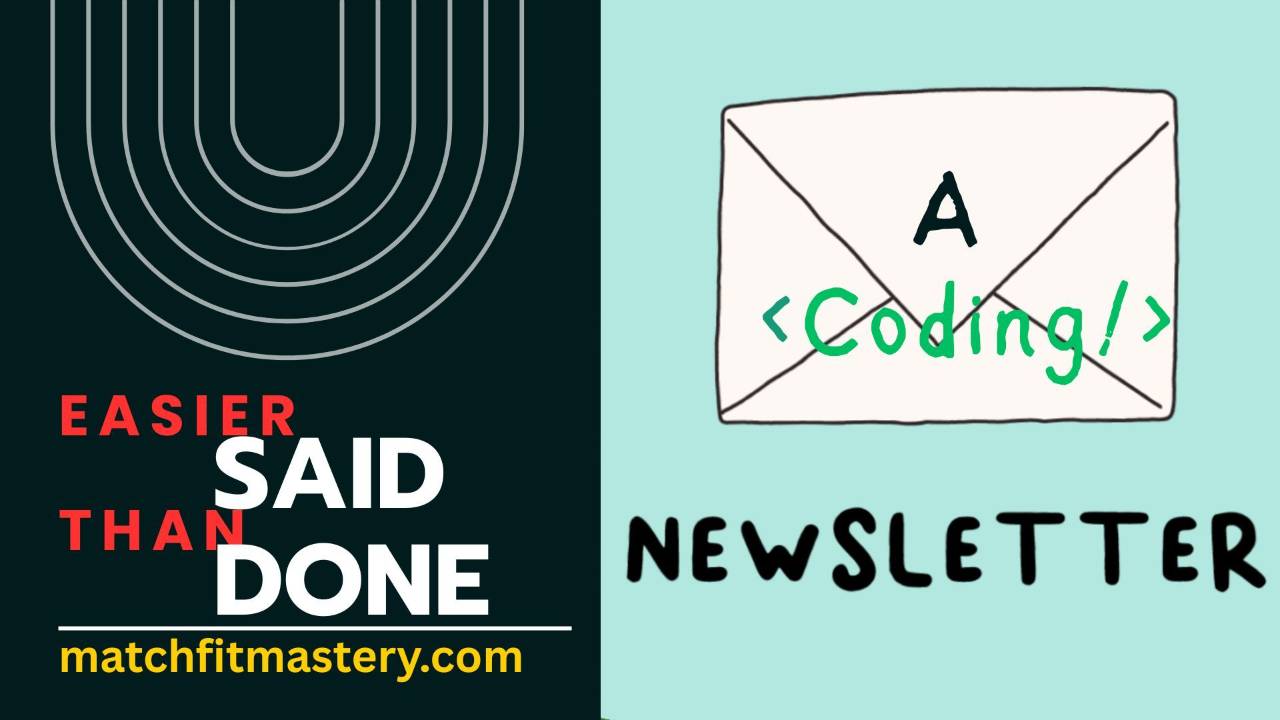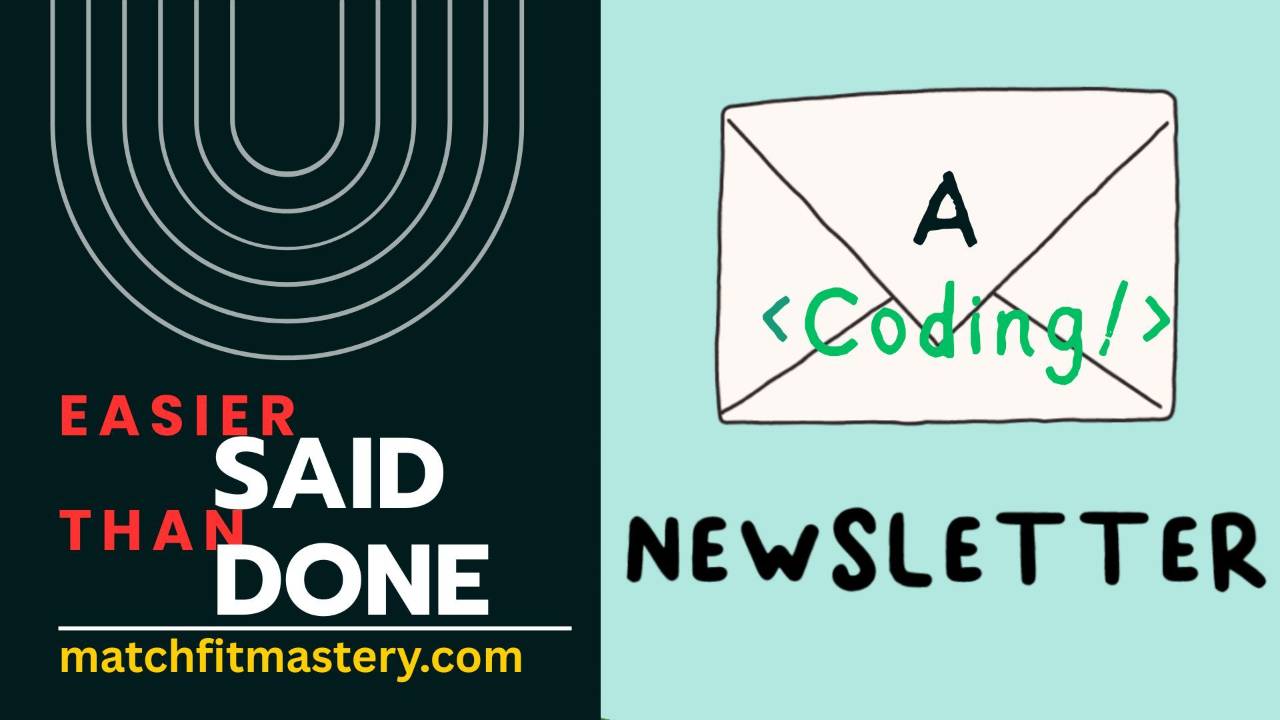The Best Learning To Code Goal-Setting Framework for Time-Poor Professionals (I Used This) [Stage 1/7]
Last week, I got an email that made my stomach drop.
"Zubin, I've completed 17 Udemy courses, built more than 100 projects, and I still freeze up when someone asks me to code something from scratch. What's wrong with me?"
100 projects? I literally had 100 times less when I got into Google. Talk about playing the wrong game…
But….Nothing's wrong with you. You've just learned how to analyse the market. Instead, you’re letting strangers on the internet tell you how you should do it.
I’m a stranger on the internet, too. But I’m going to tell you how I did it, and how my students do it today.
The scam
The coding education industrial complex (that’s what I call it!) has convinced you that your problem is technical knowledge. That if you just complete one more course, learn one more framework, build one more to-do app, somehow the magic will happen and you'll transform into a hireable developer.
That's like thinking the solution to being lost in the woods is to take more steps – faster.
You're Training for a Marathon When You Should Be Playing Chess
Here's what nobody tells you: Your problem isn't coding. Your problem is aimless effort.
I learned this the hard way. 7 years ago, I was a 37-year-old lawyer drowning in JavaScript tutorials. I'd wake up at 5 AM, grind through coding challenges, and build projects that looked impressive in my portfolio. I felt productive as hell.
I was also completely unemployable. I knew a bunch of syntax and technical terms. But I didn’t know jack about building software.
Why? Because I was solving the wrong problem. I thought becoming a developer meant "learning to code."
But learning to code is like learning to type - it's necessary but not sufficient (more on this concept later).
You wouldn't hire a typist to write your marketing copy just because they can hit 120 WPM.
The people getting hired weren't necessarily better coders than you.
They’re just better goal-setters.
Check out my podcast episode on Coding Goals: YouTube | Spotify
5 reasons why almost everyone fails at getting hired
Most career changers fail for the same five reasons, and none of them are about being “smart” or about coding “ability”:
1. Vague Goals = Career Suicide. "I want any coding job" is like saying "I want to move to Canada." Which city? Doing what? For which company? Without specifics, you're optimizing for nothing.
And you’re going somewhere. But not where you’d like to go.
2. Tutorial Treadmill Addiction Tutorials give you dopamine hits that feel like progress. You're busy, not productive. The market doesn't care that you completed 47 courses.
It’s not quantity. It’s quality. In fact, quantity is what is overwhelming. Quality is just rewarding.
3. Shiny Object Syndrome "Maybe React will be the thing that clicks." "Perhaps I should learn Python instead." You're guessing your way to success because you never defined what success looks like.
You only jump around when you’re guessing and hoping. Neither are strategies.
4. Zero Market Research You're building skills in a vacuum, hoping someone will want them.
That's like opening a scuba shop inside a ski resort just because you like diving and skiing.
5. No Progress Metrics You can't tell if you're 10% ready for interviews or 90% ready.
Without a finish line, every step feels meaningless. Without a benchmark, you’ll NEVER feel good enough.
And chances are the hiring manager doesn’t care about your opinion on the matter…
The Career GPS Framework That Changes Everything
After teaching hundreds of career changers to learn to code so they can land a REAL coding job, I've identified the three-step system that actually works.
I call it the Career GPS Framework because it works the same way Google Maps does.
Step 1: Destination Mapping (Get Stupidly Specific)
Stop saying "front-end developer." That is not specific enough for you, nor is it specific enough for the recruiter.
Start saying (example only, not saying you SHOULD be this….) "React developer at mid-sized SaaS companies building customer dashboards in Austin, Texas."
This forces you to research actual job postings, not follow generic roadmaps. Every word in that sentence requires different preparation:
-
React (not Vue or Angular)
-
Mid-sized (different culture from startups or enterprise)
-
SaaS (different problems than e-commerce or media)
-
Customer dashboards (different skills than marketing sites)
-
Austin (different market from San Francisco)
Your objection: "But I don't know enough to be specific!"
The reality: The people getting hired RIGHT NOW knew exactly what they wanted years ago.
While you're "learning more," your competition is already committed to a path.
Step 2: Route Planning (Reverse Engineer the Minimum)
Once you know your destination, work backwards. What specific skills do React developers at mid-sized SaaS companies actually need? Not what bootcamps teach - what job postings demand.
Focus on the minimum viable skills for that role. Ignore 90% of what coding influencers tell you to learn.
This isn't about being lazy. It's about being strategic. You want to get hired so you can learn the advanced stuff on company time, while getting paid.
Your objection: "But there's so much to research!"
The math: 30 minutes of research saves 30 hours of random tutorials. As a busy professional, you can't afford NOT to research.
Oh, and NO guesswork allowed.
“It’s hard to find out” is true.
It’s also true that “it’s hard to succeed without a clear plan and from guesswork alone.”
Step 3: Progress Tracking (Lead and Lag Indicators)
Set weekly input goals (lead indicators) and measure actual output (lag indicators). If you commit to 15 hours of focused study per week but only hit 10, that's data. Either your goals are unrealistic or your execution needs work.
Track everything. Hours studied, concepts mastered, portfolio pieces completed, job applications sent. You need to know if you're 3 months away from job-ready or 12 months away.
Your objection: "I don't have time for tracking!"
The truth: You don't have time NOT to track. Tracking prevents months of wasted effort. Unless you have months to waste…in which case you’re probably not changing careers as much as trying to find your first career.
Why This Framework Actually Works?
The Career GPS Framework transforms you from "someone who knows some coding" into "the obvious choice for this specific role."
How do I know? Because every business uses the same principles, and so does every single one of my students who succeeded.
Instead of competing in the general talent pool (where you're up against CS grads with years of experience), you compete in your chosen niche. Dramatically less competition, dramatically higher success rate.
Employers don't hire "coders." They hire solutions to specific problems. When you've researched their exact problem and built yourself into their exact solution, the hiring decision becomes obvious.
The Question That Changes Everything
Here's what I want you to ask yourself right now:
On a scale of 1-10, how serious are you about this career change?
1 being "kind of interested," 10 being "apart from friends, family, and health, this is the most important thing in my life."
If you're not at least a 7, you're going to struggle.
I don't say this to discourage you - I say it because pretending otherwise wastes everyone's time. And time is money, and you could use your time to do what you REALLY want and earn money by being awesome at it.
Look, a career change is hard when you already have a job and a family.
You're competing against people who code 8 hours a day while you squeeze in 2 hours after work. The only way to win is to be more strategic, not just work harder.
What Happens Next
Most people will read this, nod along, then go back to their JavaScript tutorials. They'll tell themselves they'll "figure out goals later" after they "learn a bit more."
Don't be like most people. If you’ve read this far, then maybe you’re trying NOT to be like most people..
The tutorial treadmill will still be there tomorrow. Your competition is setting specific goals and getting hired while you read this…while you're completing your 48th course.
The choice is yours: Keep busy or start making progress.
But choose quickly.
Every day you delay goal-setting is another day your competition gets closer to the jobs you want.
Four ways we can help you:
1. Wondering what learning to code actually means?
Becoming a coder is much more than just "learning to code" some languages. When I was hired at Google, for example, I didn't know three out of the four languages I had to write every day.
If you're still wondering if coding is right for you, then I recommend:
👉 My FreeCodeCamp Course --> Before You Learn To Code (Video).
👉 Updated version (including Google and other big tech experiences)
2. Inner Circle (Free Preview Included)
Our personalized, intensive mentorship program is designed to help career changers go from zero to software developer—and get hired. It’s not for everyone, but if you’re ready to commit, we’ll walk with you every step.
👉Preview the Inner Circle Program -> free preview.
👉Apply for Inner Circle → parsity.io/inner-circle
3. Career Change To Code Podcast
Driving? At the gym? Hiding in the bathroom? Perfect time to inject the best techniques for a career change to code directly into your brain via
👉 Follow the podcast here: YouTube | Spotify
4. Weekly Tips In Your Inbox
👉 Subscribe to this newsletter (it’s free). I try and keep it to 3 minutes or less so you can read in the elevator, waiting in lines, in the bathroom...😝





